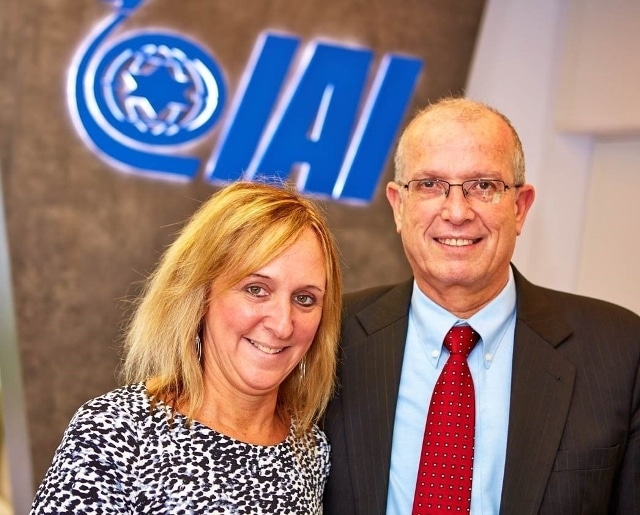Jul 12 2016
Honeywell is partnering with Israel Aerospace Industries (IAI) to jointly develop a sense-and-avoid capability for IAI's Heron family of unmanned aerial systems (UASs).
 Carey Smith, president, Defense and Space, Honeywell Aerospace; Joseph Weiss, president and CEO, Israel Aerospace Industries
Carey Smith, president, Defense and Space, Honeywell Aerospace; Joseph Weiss, president and CEO, Israel Aerospace Industries
Selected for funding from the Binational Industrial Research and Development (BIRD) Foundation, the system will be demonstrated for the first time on the Heron medium-altitude, long-endurance (MALE) UAS platform in 2018. The team was selected following a competitive review process that evaluated projects from many companies.
"Sense-and-avoid solutions do not currently exist for UASs to operate in a national civilian airspace. With more manned and unmanned vehicles entering that airspace, the need for sense-and-avoid is increasing," said Carey Smith, president, Defense and Space, Honeywell Aerospace. "We have decades of experience helping manned aircraft operate safely around the world, and now we're applying that knowledge and inventing new technologies and solutions to create a safer airspace."
"Developing a sense-and-avoid system for our Heron UAS is a significant step forward in integrating MALE UASs into civilian airspace," said Joseph Weiss, president and CEO, Israel Aerospace Industries. "This collaboration demonstrates IAI's groundbreaking capabilities, innovation and technological development once again. We're excited to work with Honeywell, a leading company in avionics and safety systems, and view this effort as the first step in a series of cooperative efforts."
The demonstrations and flight tests planned for mid-2018 will be conducted on the IAI Heron 1 UAS. The development work will be executed in Albuquerque, New Mexico; Minneapolis; and Redmond, Washington, as well as in Tel Aviv, Israel. Flight testing will take place in Israeli airspace. Both companies plan for the full sense-and-avoid solution to be integrated into the Heron family of MALE UASs. In the near term, the work will set the foundation for safe operation and integration of unmanned aircraft in civilian airspace and will contribute to policies and procedures allowing for certification of avionics and platform systems.
Honeywell and IAI Innovating for the Future
With the introduction of UASs in the national airspace, Honeywell recognized the need for making the airspace safer. Honeywell's development of a common sense-and-avoid system started years ago to meet this anticipated need, and the concept continues to be refined through flight test demonstrations.
The system concept includes Honeywell-developed software, algorithms, hardware and the fusion of inputs from various sensors embedded in a single prototype box or line-replaceable unit (LRU). The LRU will be flight tested for the first time through the BIRD program. It will show improved situational awareness through the tracking of other nearby aircraft, allowing for IAI's collision avoidance maneuvering logic to alert the UAS and suggest alternate flight maneuvers, resulting in a safer airspace.
"With decades of experience providing the aerospace industry with countless products focused on safety, Honeywell will leverage this and its relationships with various OEMs and government agencies to work with IAI through the BIRD Foundation and provide a significant step forward in next-generation avionics solutions that address the need for sense-and-avoid," said Smith.
"Integrating sense-and-avoid capabilities into UASs can offer great potential and market growth, specifically in commercial applications. Together our organizations will lead the way to resolve an issue that impacts the entire aviation industry," added Weiss.
The BIRD Foundation was established by the United States and Israel governments in 1977 to stimulate, promote and support industrial research and development of mutual benefit to both countries.